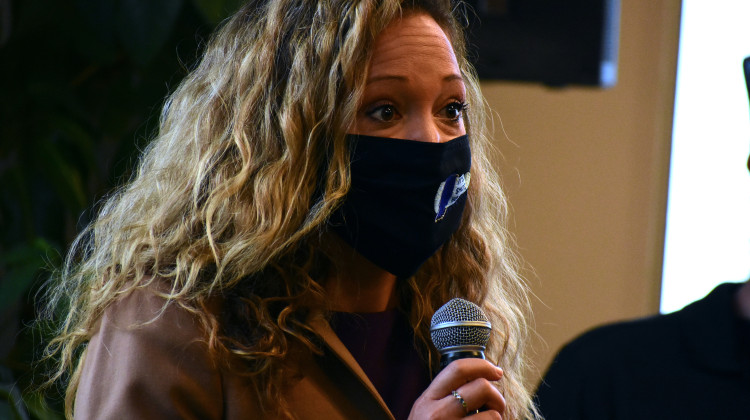
Indiana State Health Commissioner Lindsay Weaver said multiple hospitals in the state have closed birthing centers recently and there’s a chance other hospitals will join them.
Justin Hicks/IPB NewsState officials said Indiana’s lack of access to obstetrics care is growing, which is driving the state’s high infant and maternal mortality rates. Some lawmakers said more funding and better Medicaid reimbursements could help keep birthing centers open.
Indiana State Health Commissioner Lindsay Weaver said multiple hospitals in the state have closed birthing centers recently and there’s a chance other hospitals will join them.
“And we expect at least one, if not two here in the next couple of months to stop their delivery services as well,” Weaver said.
Rural health leaders at the Indiana Rural Health Association’s recent policy forum highlighted physician recruitment and low Medicaid reimbursement rates as factors in those closures.
READ MORE: Rural hospital leaders talk solutions as obstetrician care deserts grow
Join the conversation and sign up for the Indiana Two-Way. Text "Indiana" to 73224. Your comments and questions in response to our weekly text help us find the answers you need on statewide issues, including our project Civically, Indiana.
Rep. Ethan Manning (R-Logansport) said the state has the money to increase the low Medicaid reimbursement rate for OB services, which would help smaller hospitals without resources. However, he said some of the recent closures weren’t at critical access hospitals that are struggling.
“I get even more frustrated when I see large nonprofit systems who now own rural hospitals, who are cutting services even though they don't necessarily have a resource problem,” Manning said.
Rep. Rita Fleming (D-Jeffersonville) said the state needs to invest money into preventative care and eliminate “bureaucratic hassles” that get in the way of patient care.
“Our maternal and infant mortality will decrease,” Fleming said. “We'll have healthier moms and babies and we'll be able to put that money saved back into increased Medicaid reimbursement.”
Fleming said preventative care is better for the state and patients in the long run.
Abigail is our health reporter. Contact them at aruhman@wboi.org.
 DONATE
DONATE







 Support WFYI. We can't do it without you.
Support WFYI. We can't do it without you.